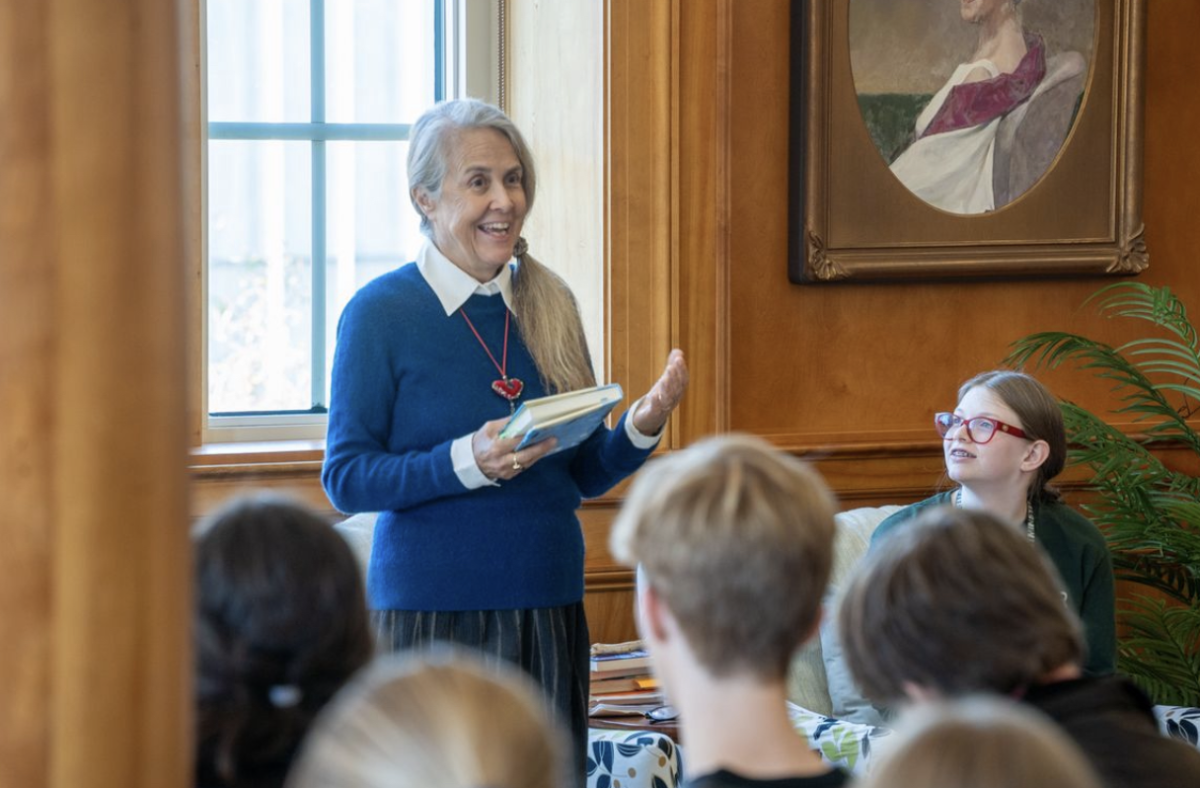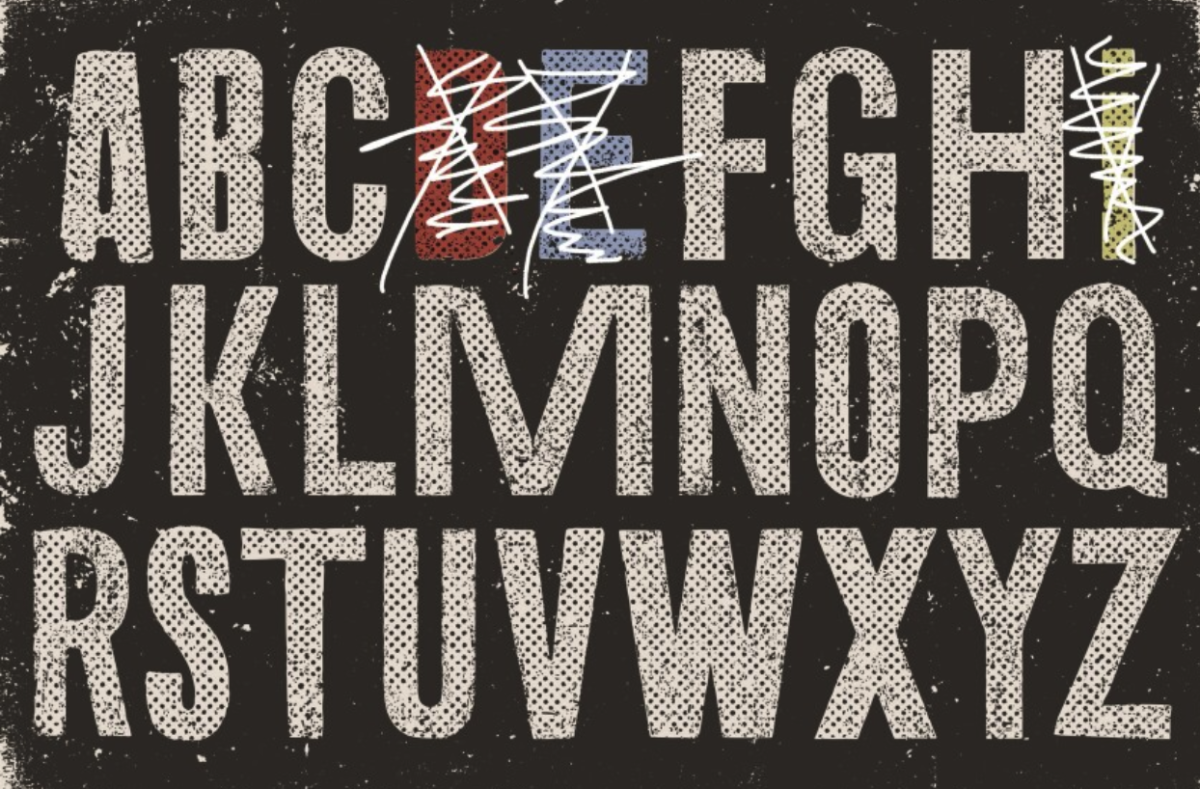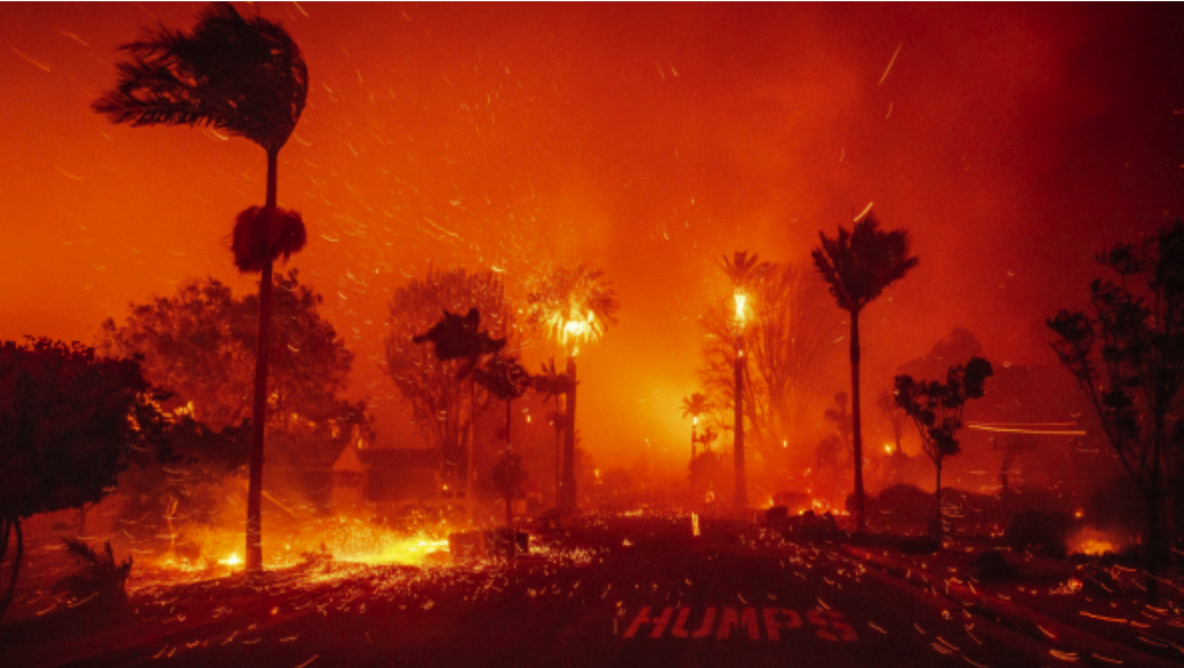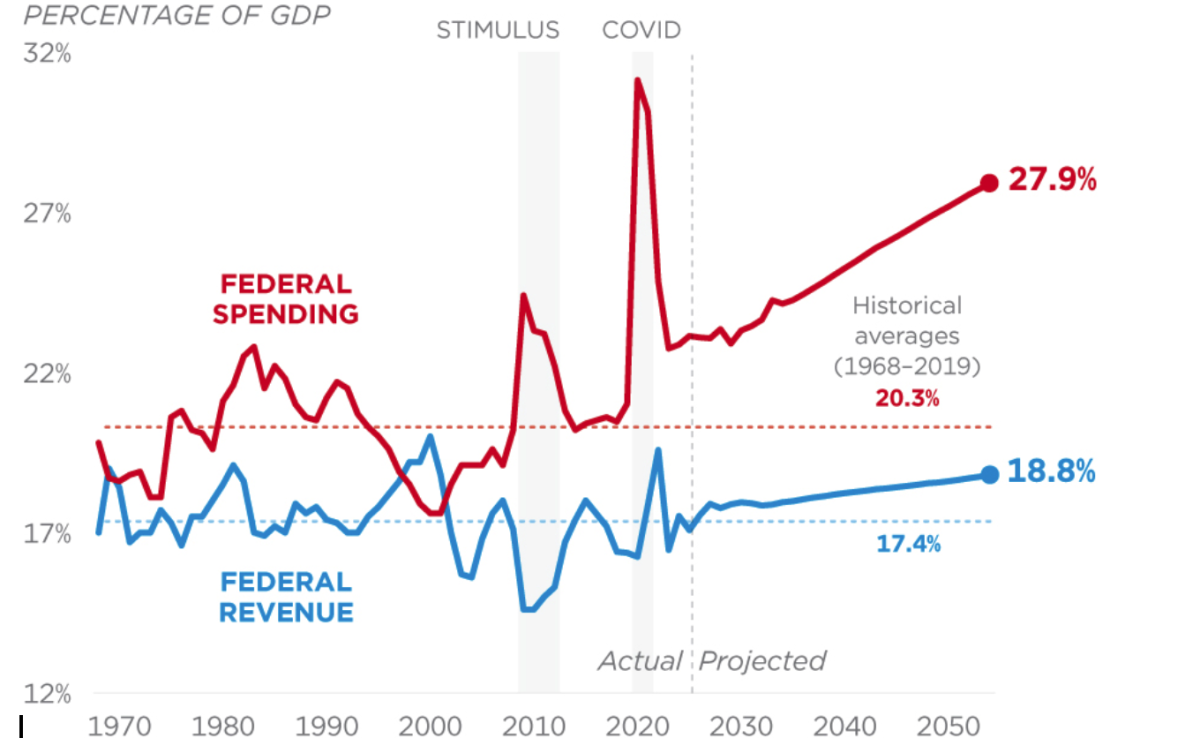After setting foot on our campus, Naomi Shihab Nye continues to make a lasting impact as her inspiring words echo in our classrooms and around the world. Addressing themes of loss, renewal, and the passage of time, Nye’s storytelling profoundly impacts readers from all backgrounds.
Now a renowned Arab American novelist, editor, poet, and songwriter, Nye was born in 1952 to an American mother and a Palestinian father. Her family valued academics, with her mother working as a school teacher and her father as a journalist. Growing up in Palestine, Nye’s father, Aziz Shihab, became a refugee in 1948, and these Palestinian roots greatly influenced Nye’s upbringing. She spent part of her childhood in Ferguson, Missouri, before moving to the West Bank, Palestine, and later Jordan in 1966. After about a year, just before the 1967 Six-Day War, the family moved back to San Antonio, Texas.
Whilst attending Robert E. Lee High School, Nye became the editor of her literary magazine. She then attended Trinity University, where she earned a Bachelor’s Degree in English and world religions in 1972. However, her writing journey spans far beyond her formal education.
Since the age of six, Nye has published 30 volumes of poetry, including novels, picture books, and young-adult books. Among her many accolades, she received the 2013 NSK Neustadt Prize for Children’s Literature and served as the Young People’s Poet Laureate from 2019 to 2021, as recognized by the Poetry Foundation.
Nye considers herself a “wandering poet.” Her childhood experiences and travels inspire much of her poetry. While she associates San Antonio with the idea of home, Nye also believes that “everywhere can be home the moment you unpack, like a tiny space that feels agreeable,” according to Torch Light.
The themes of relocation and familiarity across different locations underscore Nye’s childhood experiences and frequently appear in her writing. These themes manifest in her Palestinian-American identity, her search for home, and her empathy for different cultures. For example, in Different Ways to Pray, her first collection of poems, Nye explores the theme of cultural differences and uniqueness. In her 1982 collection, Hugging the Jukebox, she also reflects on the similarities between people and the cultural perspectives she’s encountered.
Though her themes may seem complex, Nye continues to write poetry that is candid and approachable, using ordinary language and imagery to reveal profound insights. Members of the Westminster community felt this authenticity when they heard from Nye live in the Parker Board Room on Wednesday, Nov. 13. The event, attended by students and staff, included reflection, poetry readings, and discussions on “Family, Identity, and Finding Voice.”
“I think something admirable about her is that she is famous, but she is not the type of person to flaunt that,” said Upper School English teacher Jaime Saunders. “She is down to earth, which is clear when speaking.”
Saunders’s sentiments were echoed by many students, who attended the insightful Q&A session and were struck by Nye’s approachable nature.
“She came across as genuinely willing to learn. That stood out to me because, as such an established poet, she is still open to improving,” said junior Chris Qin, one of the featured Writing Fellows leading the event. “Even afterward, during the workshop with the Writing Fellows, she told us about how she received poems from second graders in Canada. She was so inspired by these poems that she traveled to Canada to meet the students. That really stuck with me.”
Nye’s engagement with aspiring writers and poets highlights her dedication to nurturing creativity in others.
“One of her themes that resonates with our students is that poetry is everywhere and does not have to be a lofty, intangible thing; you can be inspired to write a poem from any experience,” said Upper School English teacher Sarah Darling. “Another aspect of her poetry that many of us appreciate is her approachable language, which makes us think, ‘Hey, I can write poetry too.'”
Naomi Shihab Nye’s visit to Westminster left a lasting impression on both students and faculty, encouraging students to create literature that bridges cultures and connects people. Her poetry continues to inspire members of our community, fostering a deeper understanding of beauty, empathy, and identity in the world.
Edited by Sarah Wang






